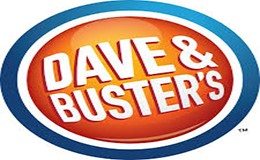AF: How long have you been a writer?
All my life in some ways, but only seriously (beginning as an arts journalist and playwright) since 1999.
AF: What inspired you to write this book?
Many different things converged: a game I made for my young niece, in which she left ordinary objects at the door of a “fairy house,” and the fairies returned them transformed (a pebble became an amethyst geode, for example); also my interest in the gorgeous, otherworldly environmental art of Andy Goldsworthy; and my longtime interest in Ireland, where my mother’s family was from. It’s also in some ways the story of my own journey from embarrassed, triple-secret, no-one-must-know writer to someone brave enough to say out loud “I’m writing something—can I show you a piece of it?”
AF: How long have you lived in Austin?
Permanently since 1981, though I lived here off and on during the summers in the late 70s. You know I liked Austin to be willing to spend summers here.
AF: Tell us about your family.
I am married to the artistic director of the small alternative theater space Hyde Park Theatre since 2001. I’m an actor as well—that’s how we met. We have no kids by choice, but I have five younger brothers and sisters scattered all over the country, and I adore them and dote on their children (see niece story above). My father lives out in the woods north of Houston in a cabin he and my grandfather built themselves, and I visit him as much as I can.
AF: What do you like most about Austin?
The rich, bubbling arts scene—theater, writing, music, dance, visual arts. It’s supported by the chill, cheerful, up-for-anything Austin audiences, whom I adore. It used also to be made possible by cheap places to perform and exhibit and cheap housing, but those days are gone, and it makes me worry for Austin. I am not sure people understand how much the new-arts scene is the yeast that makes Austin rise. It’s nice to have places like Zach or the Long Center, where you get dressed up and see something expensive and easy to swallow. But if we don’t also have the little warehouse theaters housing and nurturing all the new creative energy, then artistically, this city will become a boring little backwater. And if artists and musicians can’t afford to live here . . . then Austin really won’t be Austin any more.














